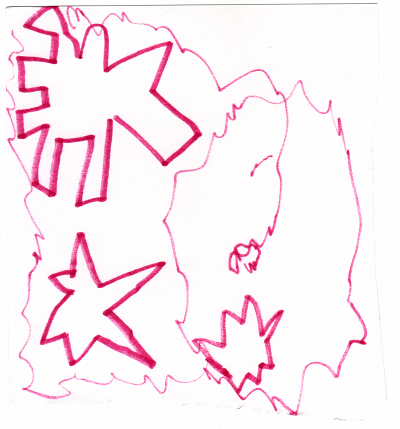Submitted by cuz on Fri, 11/21/2014 - 17:51
Here is an interesting screed by Michael Hobbes that argues that development is a slow, piecemeal process that is unamenable to development's Big Ideas (like Millenium Villages, PlayPump, and deworming) because local contexts are so varied and complex that Big Ideas are likely to produce unanticipated and undesired outcomes. It seems pretty right on to me.
Submitted by cuz on Sat, 11/15/2014 - 05:41
This evening my daughter asked me if I knew that "God made everything". Apparently a middle-aged man (presumably a pastor or priest) came to her (private) school today and talked to them about how God made everything. "Apples? Did mankind make apples? No," she quoted to me, "Spoons? Did mankind make spoons? No." Well, actually, yes mankind did make spoons. But I guess this is where our intellectual relationship gets interesting. There's no way I'm going to let her believe that I believe in God. But how do you counter this kind of claim in a discussion with a five-year-old? I figured the Big Bang and evolution should wait and focused on the spoon. First, I tried to show that people make things, using a wonderful picture she drew in art class today as an example of something "God didn't make". She countered that God made the paper and pens she used to draw the picture. (Smart kid.) So I showed her a video of how paper is made. I'm not sure this was convincing since she got distracted by the mere opportunity to watch videos, but it drew our first ontological dispute to a temporary resolution.
I guess we should make some of our own paper.
Submitted by cuz on Sun, 05/11/2014 - 12:50
We were playing with newspaper the other day.

Submitted by cuz on Sat, 03/22/2014 - 16:59
I read an article in the International NYTimes today that reported on American individuals' pride at being on Putin's sanctions list. "A badge of honor," one senator said. Well, it seems that I have my own badge of honor. My niece told me that she cannot access this website at her public school in Connecticut. Apparently it is listed as a "governmental advocacy" site and is thus inappropriate for high school students who should only be taught "facts" and not opinions. The details are vague and she is looking into the matter more deeply, but while this worries me, it is also a bit flattering. It worries me, of course, because even the official sanctioning of facts and opinions is ideological and politically motivated and channels students into narrow debates that do not question the broader organization of society, reducing their capacity as citizens. But it is also flattering that some individual, organization, or algorithm considers these words to be a potential threat (to...?).
My niece reports that she knows of no other blogs or sites that are blocked, just this. Of course, this means only that she hasn't come across others, but it also implies that there is likely an active limiting of free speech in the supposed land of freedom. Security through the suppression of ideas. Now where has that happened before...?
[Or perhaps it's just an expression of over-filtering.]
Submitted by cuz on Sun, 03/02/2014 - 10:45
Evgeny Morzov has a short piece on how achieving mindfulness by disconnecting temporarily from the "always on" lifestyle can be either liberating or further enslaving.
Submitted by cuz on Sat, 03/01/2014 - 12:24
So Sienna was angry with YK and I last night. To process her emotions, she cut a piece of paper out of a drawing pad and drew the picture picture. Then she handed it to YK and told her she wouldn't tell her what she drew.

I love the energy...and the healthy way of processing her feelings.
Submitted by cuz on Sat, 03/01/2014 - 12:14
So, during potty training, Gian really enjoyed flushing the toilet and would try to flush it for everyone when they were done. I'm not sure if she still feels the same enthusiasm, but it has become one of her official positions in the household. Whenever Sienna finishes her time on the toilet, we suddenly hear the yell for "Flush Master!"
Submitted by cuz on Wed, 02/26/2014 - 10:44
Yesterday I had a little adventure around 선정릉 in Gangnam that has got my thoughts all in a flurry. I was on my way to a meeting of the City Knowledge Unit (CKU), which is an academic, business, and government group organized to promote Korea's model of urban development overseas. It has grown out of a similar group that concentrated on developing a strategy for expanding Korean construction overseas. On my way to the meeting I was reading the war machines chapter in A Thousand Plateaus, so perhaps I was just overly sensitive.
On the train (분당선), the first cognitive disjuncture was passing through Apgujong Rodeo Station (압구정로데오역), which explicitly evokes Rodeo Drive in LA. To me, this just seems like slavish mimicry and empty aspirations for conspicuous consumption. I increasingly fail to understand how anyone can fetishize the absurdly priced, supposedly fashionable objects offered for sale in the stores that populate such neighborhoods. Of course, the purchase of such goods is really to evoke the envy of one's peers and to assert one's equivalence or superiority over them. In short, conspicuous consumption is an external sign of power (generally). But I fail to understand why someone can believe that such competition can make them happy. (Perhaps it's just because I'm not wealthy!)*
Submitted by cuz on Mon, 02/17/2014 - 14:13
This link offers an interesting 5min film explaining how the reintroduction of wolves into Yellowstone National Park after 70 years of absence has altered the very geography through a "trophic cascade". The basic idea is that a small change at the top of the food chain "cascades" down the chain, reshaping the ecosystem along the way. This interests me in at least two ways. First, it highlights concepts from resilience theory about how ecosystems are in perpetual construction and change. Second, having just read Deleuze and Guattari's A Thousand Plateaus chapter "1914: One or Several Wolves", which introduces the concept of multiplicities, this video suggests membership in a pack of "wolves" can have a cascade effect throughout social organization. That is, small coordinated groups of individuals can reconfigure social relations.